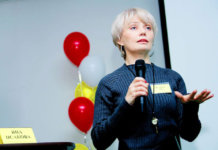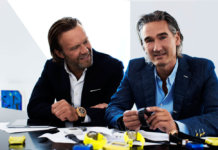Interview with Dr. György Karmazin, BI-KA Logistics Ltd., Hungary
Founded in 1991, the BI-KA Logistics Ltd. is a two-family business. The Bírós and the Karmazin families established BI-KA Bt., later renamed BI-KA Logistics Ltd., in the town of Szolnok. BI-KA began by renting out minibuses, later expanding its activities to organising carriages. Today the company is a market leader in forwarding, transportation, and logistics in the Jasz-Nagykun-Szolnok County of Hungary, playing an important role in the life of Szolnok.
Tharawat spoke to founder, Dr. György Karmazin about his business and the necessity of anticipated succession.
BI-KA Logistics Ltd. expanded successfully. What steps did you take to ensure growth?
In the year 2000, I decided to open up to improving the company. Other local businesses had already reached a turning point in their lifespan. Founders stepped away from the operational side of their businesses and became company ambassadors. I decided that it was also time for us to start making changes.
There were about 20 people working in our company at the time, and I found it difficult to personally communicate with each co-worker. I soon realised that a sound organisational structure was important and necessary. I began attending trainings and lectures to try and create a structure for the organisation. External advisors also made a lot of improvements.
[ms-protect-content id=”4069, 4129″]
When did you leave your operational role?
In the beginning of 2000, I still believed that I would be working as an operational leader well into my late fifties. But instead, I became motivated by other ambitions, such as writing my thesis. So, I oriented myself towards passing on the management of day-to-day operations.
When I began my doctoral studies in 2010, it was clear that leading a company and studying was too much for just one person. The moment had come to hand over the business to one of my children.
Because of their young age, and the fact that I did not want to wait too long before stepping aside, I was faced with two options: I could either “raise up” a leader from existing management, or hire someone from outside of the company.
It was clear that I did not want to give the position to an external hire, as I had heard about bad experiences in other companies. I decided to choose my successor from the existing managerial team. Szécsi Gabriella had been working in the company for 10 years, which was a big advantage. Szécsi took over my responsibilities in 2012.
Our partners and suppliers also knew and accepted her. She had really good relationships with most of them.
Where are the opportunities for growth in Hungary? Are you looking to internationalise further?
My hopes are that in the next five years, BI-KA Logistics Ltd. will become the regional market leader. We want to double our income in the next three years, with the hope of becoming a 10 billion Forints (35 million dollar) company. In the near future, we plan on renting a new locale in Budapest where we can start inland logistical distribution, offer city logistical solutions, and send collector carriages for international clients. We are also preparing to open a logistics agency in München, Germany.
Our biggest partner expects to set up a BI-KA Logistics GmbH, which will help the organisation expand geographically and to an international market. It will also foster tighter relationship with foreign partners.
Having won multiple awards for entrepreneurship and sustainability, what advice do you have for family businesses and entrepreneurs that want to grow?
Leaders of large organisations often fall into the trap of only taking care of their company. Besides a lifetime of learning and improvement, people must also think about their future and what will happen when it is time to hand over the business. We have to imagine the futures of our companies, not only for the next few years, but also for the longer term.
A reorganisation plan is required since growth brings change to the structure of the business. If the founder decides to hand the business over to someone outside of the family, but maintains ownership, then they also have to consider the separation of management and ownership. New forms of cooperation, coordination, and communication have to be created and implemented.
As a leader, I had to make preparations for the next general manager in addition to planning my own future. It is not enough to find the best successor. A leader has to rebuild himself as well. Continuous self-learning, development, and the ability to change have to take a significant role, because they are important for sustainability.
Tharawat Magazine, Issue 27, 2015
[/ms-protect-content]













